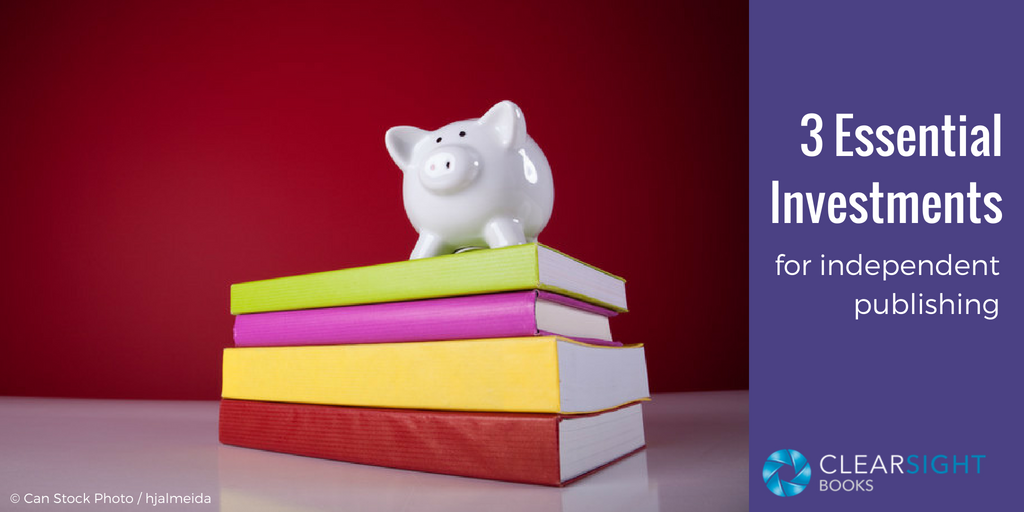 Recent question from the peanut gallery: If you invest in only three things as a self-published author, what should those things be?
Recent question from the peanut gallery: If you invest in only three things as a self-published author, what should those things be?
Okey doke. Let’s put a caveat on my answer right up front. Most of my clients are business professionals writing a book as part of their business strategy. They have valuable, book-worthy information to share, but they usually are not trying to make a living selling books. Rather, they’re trying to grow their core business or enhance their visibility and career. My advice leans toward this audience.
With that said, here we go…
Investment #1: Good Editing
Hands down, my top recommendation is to hire a good editor. My rationale: I don’t like bad books. OK, it’s a little more than that (sort of, but not really).
- Craft experience – If you’re like many of my clients, you have great content and you write in the course of daily business, but writing isn’t the craft you’ve honed. A strong editor—who has honed that craft—can make sure your content shines on the page.
- Project magnitude – A book is a materially larger project than a blog post or article. Even if you’re a skillful writer, you may struggle with certain aspects simply due to scale. Or you may not recognize a problem exists. A strong book editor can help address the issues that come with such a substantial work.
- Fresh eyes – No matter how solid your writing is or how many books you’ve written, over time you become so familiar with your manuscript that it becomes extraordinarily difficult to edit it yourself. You just can’t see the mistakes anymore. You need a fresh set of eyes to catch what you miss.
(I’ve heard a counterargument that if your book is a marketing tool, the writing quality doesn’t matter because most people won’t read it; it only matters that you have a book to hand them. All I can say is, I work on books that are meant to be read. If you wouldn’t want a poorly written LinkedIn profile, why would you want a poorly written book?)
Investment #2: Good Cover Design
Imagine you’re browsing books online. You see thumbnail after thumbnail of books relevant to your search. Which do you click on? Those that capture your attention. Your book cover design (graphics, color, lettering, images) must be enticing enough for viewers to want to click. It should be a visual magnet.
Just as most of my clients are not professional editors, they’re not professional book cover designers (me either). A poorly designed cover is a hallmark of books that give “self-published” a bad name. I recommend hiring a pro for this job.
Investment #3: Good Interior Design
Poor or non-standard interior book design is another red flag that says, “Whatever…I don’t care; I’m a self-published book.” When a book doesn’t conform to design standards, it feels off—even if you can’t articulate why. (Hint: I often see problems with indents, paragraph spacing, and fonts.)
If you’re a technology-savvy, design-savvy DIYer, you can probably do enough research to learn how to format your book. But for most people, that’s a big learning curve and it comes with a big opportunity cost. I recommend finding someone who knows book design. Tip: Book designers frequently also offer conversions to ebook format.
But what about everything else?
You can invest in any number of other resources: coaching, marketing, project management, and on and on. All can be useful, appropriate, and important depending on your purpose, strategy, and goals—not to mention your budget and the degree of support you prefer.
But you can write a book without a coach. You can publish a book without a project manager. And you can find free or inexpensive ways to market. (Hint: leverage your existing marketing processes.)
To deliver a quality book, you must invest in the book itself.
Hire an editor to make sure it has logic and flow (and no errors). Get a designer to create a cover that makes readers want to click on it, pick it up, open it. Hire someone to format your book for print and ebook, conforming to publishing guidelines and appropriate style for your genre.
If you invest in only three things, make them the things that matter most.

